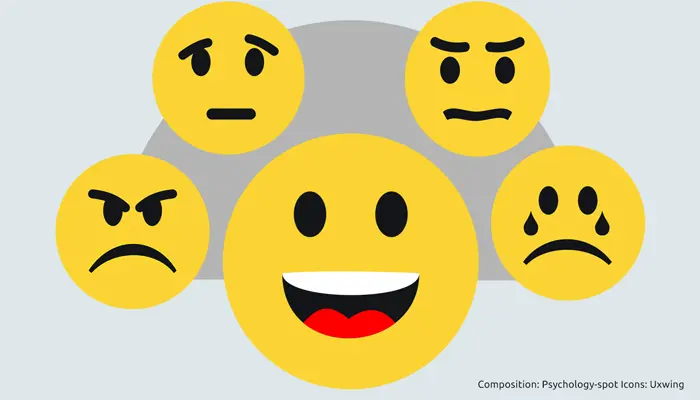
How many times have you used a smiley face to “soften” your words? Or did you add a wink to indicate that you were joking? However, have you stopped to think about how the recipient of your message interprets those visual cues?
We send emojis all the time, without much thought, usually because they’re funny. Many times we also use them to let others know that we are joking or being sarcastic, or perhaps to let them notice that we are not as angry as we seem. But does that message really get through? A psychological study conducted at the University of Ottawa plants the seeds of doubt.
The complex psychology of emojis
In 1999, Shigetaka Kurita, a Japanese engineer, rescued Pioneer’s idea of creating an attractive interface so that people could express their feelings and information simply using their phones. His package contained 176 emojis, but they have since multiplied and become ubiquitous in digital communication.
Psychological studies confirm that they more than fulfill their mission: they help us quickly express what we feel, reducing the possibility of misinterpretations and improving digital interactions. It is no coincidence that, although there are thousands of emojis available, the ones we use most frequently are precisely those that imitate facial expressions of emotions and feelings.
Many emojis symbolize non-verbal cues that we typically pick up and decipher in face-to-face interactions. Therefore, they are valuable clues to understand the value of the written message, especially when it is brief, as occurs on social networks or instant messaging.
However, perhaps we are overvaluing the communicative power of emojis and we do not realize that it is precisely this impact that can play tricks on us, adding an element of confusion if we do not use them correctly.
There are no smiley faces worth it
Researchers from the Faculty of Psychology at the University of Ottawa analyzed the impact of emojis on the interpretation of emotions, social attributions and information processing.
Participants read messages typical of social exchanges accompanied by emojis that imitated negative, positive and neutral facial expressions. The valence of the sentence and the emoji sometimes matched, but at other times they were discordant.
Psychologists noticed that people developed a negative mood when they received a negative message accompanied by a negative emoji, something quite understandable. In fact, the presence of a negative emoji intensified the perceived negativity of the words.
In contrast, adding a positive emoji to messages increased perceived warmth. Up until this point, the experiment was only proving what is obvious, but at a certain point everything changed.
The researchers found that negative messages or emojis had a strong prevalence when interpreting information. Even if the text was positive, if it was accompanied by a negative emoji, it had a negative impact on the recipients, most of whom interpreted that the person who had sent it was in a bad mood.
However, when the text was negative and accompanied by a positive emoji, recipients ignored that visual cue and focused on the negativity of the words. In fact, people even rated senders as colder or more distant for sending a discordant emoji.
Moral?
The smiley faces or winks that we usually send to “sweeten” a negative message are not as effective as we think. Everything seems to indicate that, when faced with the inconsistency of a message, our negativity bias is activated. Focusing on the worst may seem pessimistic, but it is actually a strategy that our brain uses to anticipate possible problems or catastrophes and develop a plan B.
We must also remember that when we use negative emoticons we are perceived as people with a worse character or a negative mood, regardless of the tone we give to our words. In other words, emoticons are not a simple reinforcement but they can change the tone of the message and the taste in the mouth that we leave for those who receive it.
We think that the others will understand our words and that emojis are just a fun extra, but their weight in communication is important. The way we use them influences the way others interpret our messages.
Therefore, it is advisable to make sure that the emojis we send are in line with our words and to choose the most appropriate ones so that they leave no room for doubt. Because when we are not clear about what the other person meant, we will inevitably focus on the negative.
Source:
Boutet, I. et. Al. (2021) Emojis influence emotional communication, social attributions, and information processing. Computers in Human Behavior; 119: 106722




Leave a Reply